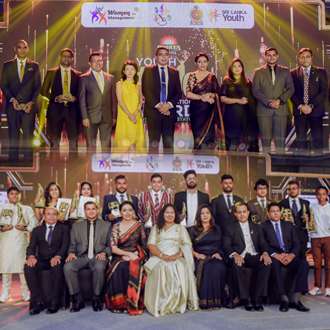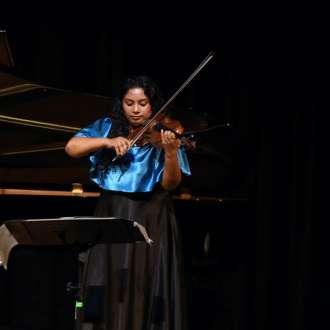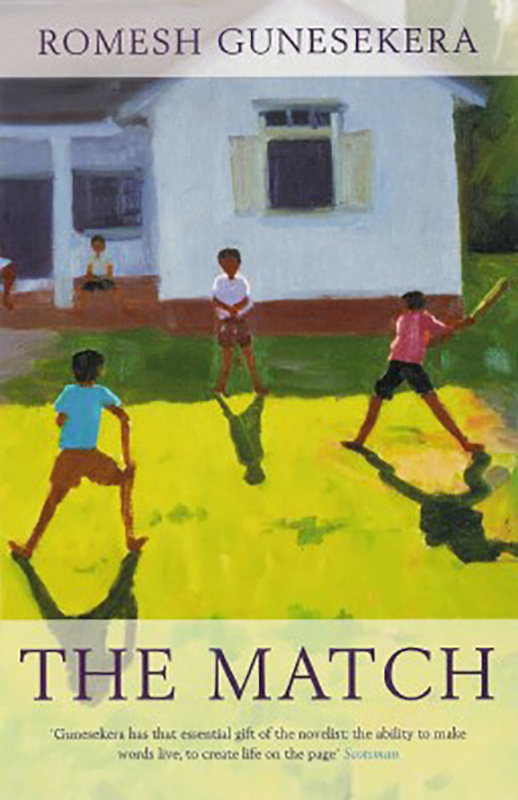
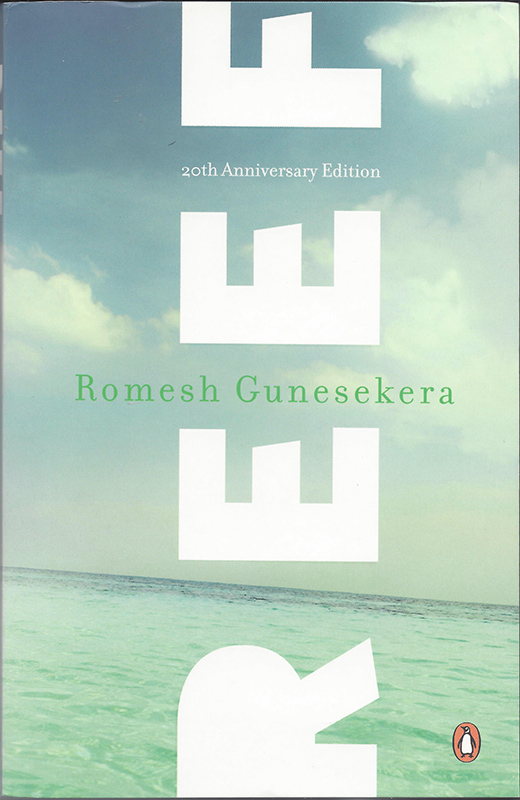
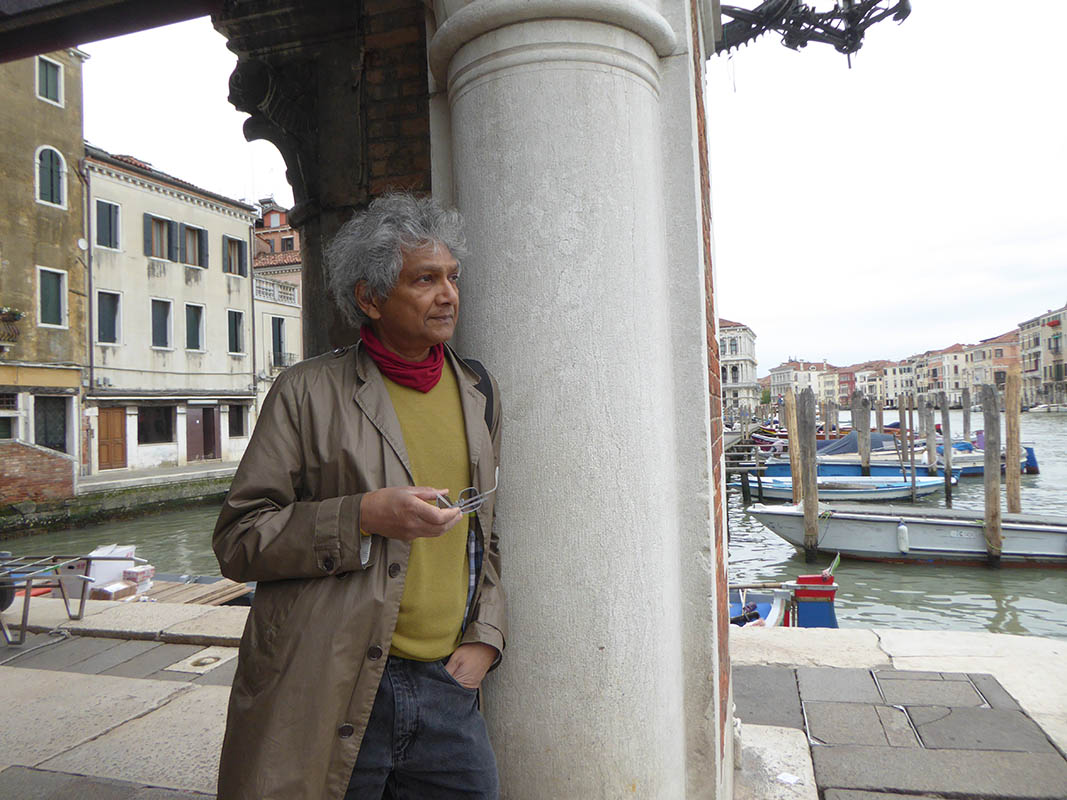
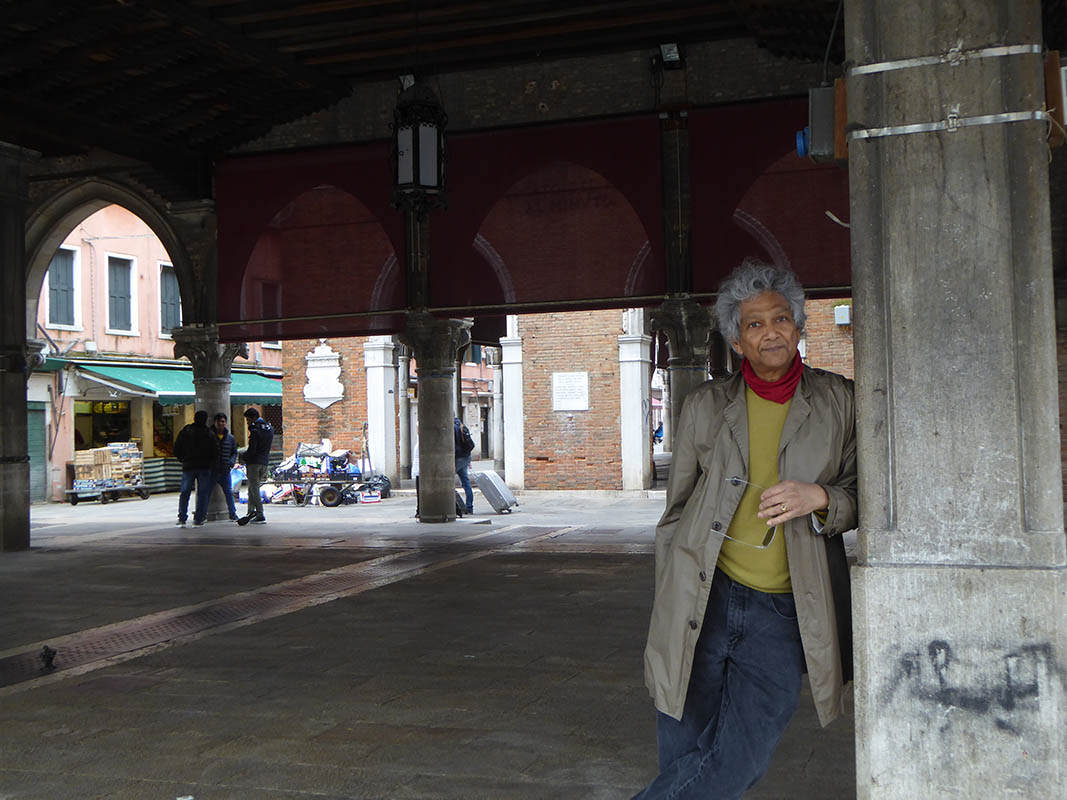
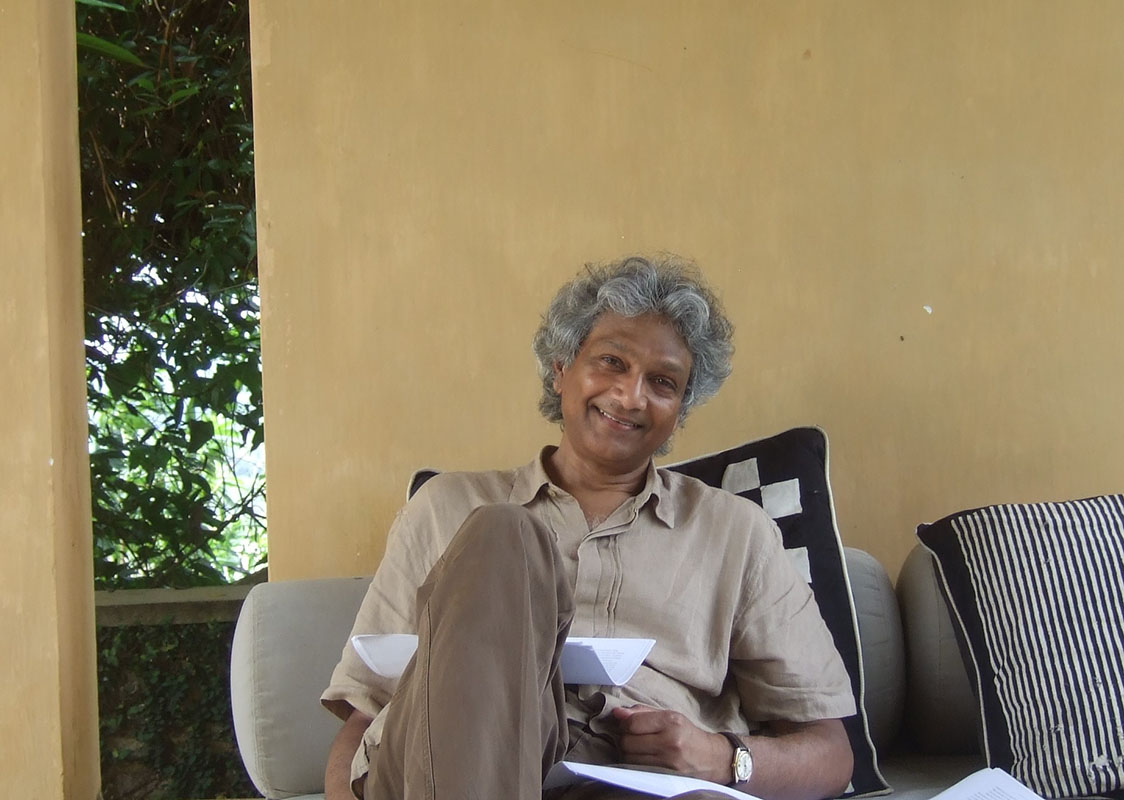
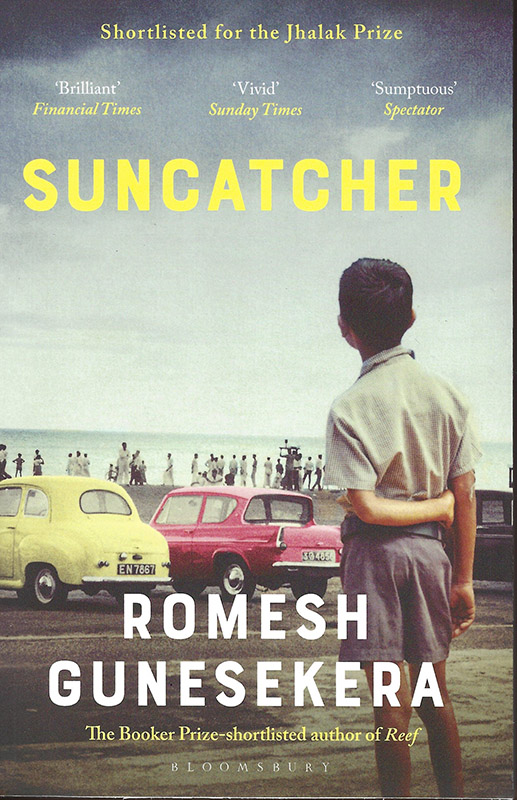
If you've been fortunate enough to read one of Romesh Guneseskera's award-winning novels or collections of short stories that are set variously in Sri Lanka, Manila, London and Mauritius, you'll already know this accomplished poet and author of fiction is a master storyteller of human nature.
His soul-stirring novels such as 'Reef', 'The Sandglass', 'Heaven's Edge', 'The Match', "The Prisoner of Paradise', 'Noontide Toll', 'Suncatcher' and 'Monkfish Moon' (his short story collection), to name but a few, were not written to embroil readers in the controversies of political, ethical and religious turmoils, but to paint a picture of the raw emotions that each character struggles to deal with during these turbulent times. In particular, Romesh describes to a tee the inner conflict that can translate into fear, disgust, confusion and loneliness under such conditions.
"Life happens, and life doesn't always go according to plan" is what Romesh Guneseskera's narratives teach us.
The internationally acclaimed Romesh Guneseskera shares his thoughts with Hi!! and sheds light on his work and lifestyle in London.
I find all lives extraordinary when you begin to examine them. Whether a person has lived in one place or a hundred, the experience you gather as a person is unique and astonishing. And you need to be able to see that if you want to write the kind of novels I try to write. My memories are often difficult for me to untangle from my imaginings, but I think that might be true of most of us. My favourite memories are in my books, sometimes hidden or transformed, or sometimes just there like the view of the ocean you get driving down the south coast of Sri Lanka.
That’s a rosy characterisation of England which I would have thought had evaporated by now in the modern globally connected world we live in. There is a much darker, grittier side as well as a more complex and multicultural side to this part of the world than the chocolate box picture. Of course, living in a city like London there are things I miss about Sri Lanka, but some people living in Sri Lanka also miss them. The big difference is that the last 12 months is the first time that I have not travelled out of England for such a sustained period. I haven’t even travelled outside a very small urban patch, so not only have I not seen Sri Lanka, but I haven’t seen the local countryside or the seaside.
I only went as far as central London (King's Cross area) last summer which is about an hour and a half’s walk down the road. That was to a Covid-free studio to record the audiobook of Suncatcher (https://www.audible.com/pd/SuncatcherAudiobook/1526630990) which was quite a surreal experience.
I miss them all, except that the lockdown has made the journeys I make on the page even more important for me.
Yes. But that was a long time ago. At school, it was Sinhala, at home the language was more often English.
I started writing imaginatively only in my teens. And since then writing has come easily, but writing well, and writing something that might be worth reading, is a different matter. That takes time and craft. Patience and labour. Some books get done remarkably quickly, like Noontide Toll, which was urgent in the aftermath of the end of the war, and others like The Prisoner of Paradise took about six years to get right.
As a child, I was not a writer. I liked drawing and making pictures more. And reading.
When I mentor other writers, I try to encourage them to find their own aids to writing. But developing a habit of writing is very helpful. The Greek artist Apelles in the fourth century BC offered this advice: never a day without a line. That was about painting and drawing but applies even more to writing. A good habit like that is hard to beat.
The short story is doing well. These last few weeks I have been judging the Sunday Times/Audible Short Story Award for the second year running. It is a much bigger prize than most novel prizes and the range of entries is extraordinarily exciting. These are talented writers who will find readers.
Although you are right that in some places the novel still gets more general attention, publishing is much more varied now with different platforms, different methods and different audiences.
For me, a great story is one where I feel reading it has been the best thing I could have done and I feel glad to have had the chance to do so.
It is quite risky to think that you, or your writing, is funny. But it was a great pleasure to discover that some readers found what some of my characters say, or do, hilarious. If you are lucky your writing will have enough life in it to do the unexpected.
I let the characters grow. The labour, as with plants, is in helping them grow within the story. As for names, they are important to me on many levels. They are important as words. So, the sound, the look and the meaning of a name play a part on the page or the paragraph. Triton, Pearl, Sunny, Uva, Kairo. The associations matter.
In the Sri Lankan context, names carry a lot of baggage. We tend to assume many things about a person from their name. So I try to navigate all of that and make my characters as interesting as the people I meet.
Fitzgerald is a great writer, but not always right. Not all writers write because they have something to say. It may be true of his own writing, but I am not sure even that is the case. It is much truer of George Orwell who said he never picked up his pen without knowing exactly what he wanted to write.
Not me. I write because I like to, and sometimes because it is the only way I can discover what I think. I hope that any reader who comes across what I produce will discover from it what they think too. The discovery is important and for me comes with the writing, not before.
Perceptive critics, I appreciate and value. But when you have been publishing for over thirty years, as I have, you also invariably attract some blinkered critics with odd agendas. If it furthers their career, good luck to them but the less perceptive ones who miss the point risk making fools of themselves and are best ignored.
Now, let's take a few minutes to chat about some of your books.
At that time hardly anybody in Britain made their debut with a collection of short stories. The vogue was for big, magic realist novels, especially if you were a writer with a South Asian background. But that was not the kind of fiction I was interested in writing. So getting the book published should have been impossible. However, I was lucky in that my publishers were new trendsetters making a splash and they were keen to publish my stories. The hardest part was getting the stories right so that they are as fresh today as they were then.
I don’t see Reef as a historical one. It begins and ends in the period in which it was written, although most of the pages are set in an earlier period that is the rubbing together of memory and imagination. The characters would still be alive in the nineties and possibly even now.
I am not the best person to say why it received the recognition it did, or why new readers are still pleased to discover it. I guess in 1994 it was a very different kind of novel to the ones people were used to. It gave a glimpse of a world that you didn’t much find in other novels. Readers connected with the characters and appreciated the art and subtlety in it. It is a slim novel with a lot to savour in it, which is much better than the other way around. Also at the time, unlike now, it was very rare for a first novel to get on the Booker shortlist. A lot of people, especially in the wider world of Asia and Africa, were rooting for it as a novel that was shifting the dial.
Reef was an intimate novel with a small cast of characters. With my second novel, I wanted to gather as big a cast as I could and find the excitement in the architecture of the novel. I tried to bring various elements into it, including a detective story, so that readers would find surprises. It was also a story in which I wanted to explore the traditional themes of mortality against the backdrop of what at that time was a very violent period in history, (although we didn’t realise how much worse things would become). In the novel, we see the effect of violence ripple from the individual to the family, to institutions, dynasties, and society in general but all done, I hope, engagingly.
I started The Match in 2002, soon after Heaven’s Edge my third novel, set in a deeply dystopian future, had come out. I wanted to explore what at that time seemed a more positive story coming out of Sri Lanka which was the success in international cricket after the 1996 World Cup. At the same time, I was interested in taking my fiction into a different geographical area. I had already planned a novel set in Mauritius but then I thought I should start by exploring a country I was already partly familiar with — the Philippines.
The challenge of combining cricket and the Philippines (which is not a cricket playing country) became irresistible and The Prisoner of Paradise, my Mauritian historical novel, got postponed. The Match became a story that pulls together very different parts of the world in a way that seemed unusual at the time but is of course very visible now. So it became a novel about belonging and identity as well family and love. It was also the first novel to bring international cricket (an India-Sri Lanka ODI at the Oval being a centrepiece) into the field of fiction and heralded what has turned out to be a flowering of wonderful cricket-inspired novels.
When I mentor writers or teach workshops, what I try to do is help new writers discover their strengths and their voice. Whether they then find the right audience is a matter of luck and perseverance and not something I can offer.
To find pleasure and joy in the craft of writing itself.
You also need some praise, as Triton the cook in Reef says, to keep going. But he learns you have to disregard the ups and downs and in the end rely on the central fact as Virginia Woolf put it, which is your ‘own pleasure in the art.’
My last novel Suncatcher featured a number of characters who haven’t left my side. So, I am hoping to discover more about them in the next novel. Books tend to have a way of rekindling things or coming back into the picture in unexpected ways. The Prisoner of Paradise is another one we haven’t talked much about but might be worth watching for what it might generate.
To learn more about Romesh and his books, visit:
https://www.romeshg.com/ & www.facebook.com/Romesh.Gunesekera
#RomeshGunesekera #Author #Writer #Novels #ShortStories #Fiction #PoliticalFiction #ReligiousFiction #EthicalFiction #InternationallyAcclaimedAuthor #AwardWinningAuthor


